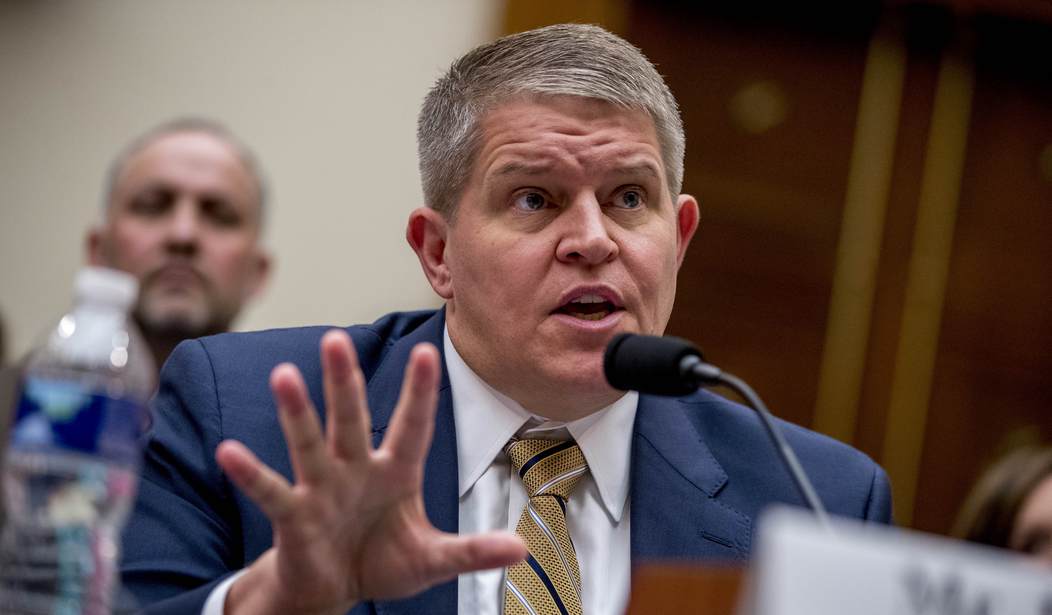Like a gun-hating groundhog (ground-Hogg?) emerging from his burrow after a long winter, David Chipman is starting to publicly resurface after his nomination as ATF director went down in a humiliating defeat. The gun control activist’s first online appearance happened a few days ago when his employer Giffords sent out a fundraising appeal in his name, but now Chipman’s given his first lengthy post-defeat interview to the New York Times, and beyond the schadenfreude it’s likely to give many Second Amendment activists, there are some interesting nuggets worth highlighting.
Chipman, like the gun control lobby in general, blames Joe Biden and the White House for his defeat, telling the Times’ Glenn Thrush that he had almost no communication with the administration after he was officially nominated.
David Chipman’s confirmation odyssey began with a short congratulatory buzz from Attorney General Merrick B. Garland in April and ended, he said, with a long, rueful call from the presidential adviser Steve Ricchetti admitting the White House had fallen “short.”
Mr. Chipman, a brash gun control activist whose nomination to head the Bureau of Alcohol, Tobacco, Firearms and Explosives imploded this month, said he had no other contact with the White House, which often left him feeling alone, on “an island,” when pro-gun groups attacked him.
Instead, the West Wing strategy focused on selling Mr. Chipman to Senator Joe Manchin III of West Virginia, the centrist Democrat and perpetual kingmaker in an evenly divided Senate, only to lose the support of Senator Angus King, an independent from Maine, which left Democrats at least one vote short of the 50 needed for confirmation.
“Either this was impossible to win, or the strategy failed,” Mr. Chipman told The New York Times in his first public comments since President Biden withdrew the nomination, conceding he could not get the votes. “This was a failure.”
Chipman might not be able to be able to define an “assault weapon”, but at least he knows failure when he sees it. As for Chipman’s either/or, I’d say it was a little of both. Chipman’s nomination was in trouble from the get-go because of his years as a paid gun control lobbyist, but if the White House strategy really was focused solely on Joe Manchin without taking the views of other red-state Democrats (or independents who caucus with Democrats in the case of King) into account, that was another unforced error.
Tom Knighton’s going to have more on Chipman pointing the finger at the Biden administration a little later today, so I won’t belabor the point here. Besides, there are some other interesting takeaways from Chipman’s interview, including the fact that he’s said “no” to a non-confirmed position at the Department of Justice and is instead sticking with the anti-gun group that signs his checks. In my eyes, that only proves what Chipman’s opponents said from the start; he was never going to be a non-partisan administrator. In fact, his anti-gun activism was why he was nominated to begin with.
A person close to Mr. King said his position should not have come as a surprise to anyone. He had already told administration officials he objected to their sales pitch — that the A.T.F., an agency he viewed as a neutral regulator, would be the focal point of gun policy under an activist director like Mr. Chipman.
Mr. Chipman got that message in person in July when Mr. King summoned him to his office.
When he arrived, Mr. King told the nominee that Mr. Chipman’s father — a King supporter who lives in Maine — had sent him a letter urging him to vote for his son.
“At least he likes you,” Mr. King quipped.
Then the senator, who had been the subject of an intense lobbying effort by pro-gun groups in his home state, laid out his grievances. According to Mr. Chipman, the senator told him that “my friends who are gun dealers in Maine” objected to the nomination.
… Last week, Mr. King explained his position in a letter to constituents, saying Mr. Chipman could not be “a fair and objective regulator” because his association with gun safety groups meant he could not be “evenhanded” with gun dealers.
Mr. Chipman drew another conclusion from the meeting: that Mr. King had been “captured” by the gun lobby, and that his own defeat was a reflection of its enduring power.
“I left his office thinking, ‘Does he really believe that people who regulate industries can only get those jobs if they’re friends with the industry?’” Mr. Chipman said. “He said the quiet part out loud.”
Clearly Chipman can recognize failure, but he still has trouble diagnosing the issue. It’s not that David Chipman wasn’t “friends with the industry,” it’s the fact that he was a hostile actor that made him a toxic choice as ATF director. There’s a lot of middle ground between nominating someone who’s worked in the firearm industry and someone who’s spent much of the past decade as paid gun control lobbyist, but according to Chipman if you don’t view gun makers as the enemy, then you must have been “captured” by the gun lobby.
I have no idea if Chipman actually believes his own spin, but it doesn’t really matter. The important thing is that instead of taking a victory lap, Chipman’s slinking back to the gun control group that he’s called home for the past several years. I’m sure he’ll be a presence as a talking head on CNN and MSNBC going forward, but thankfully he won’t be in a position to turn the ATF into a government-funded wing of the gun control lobby.









Join the conversation as a VIP Member